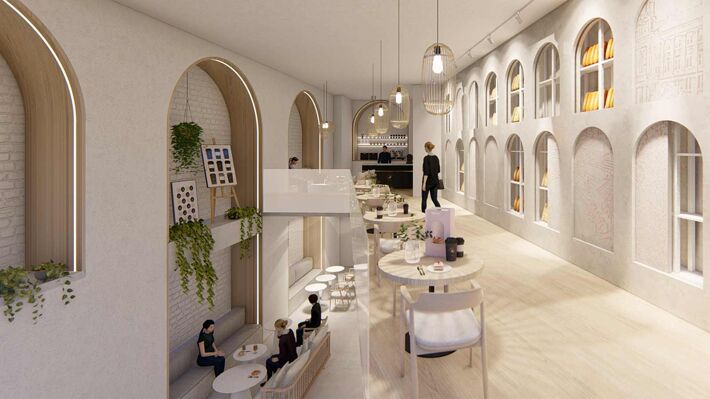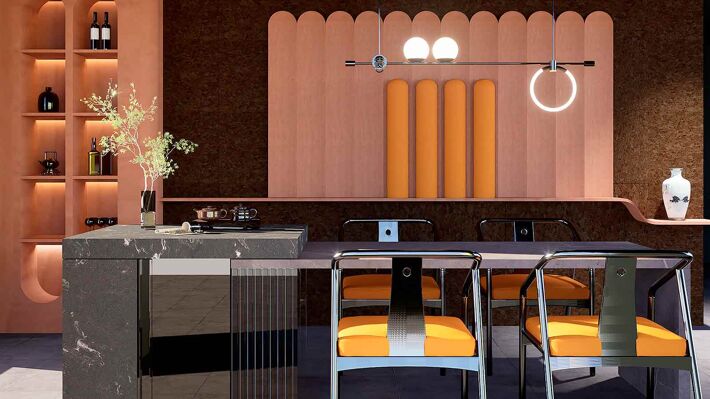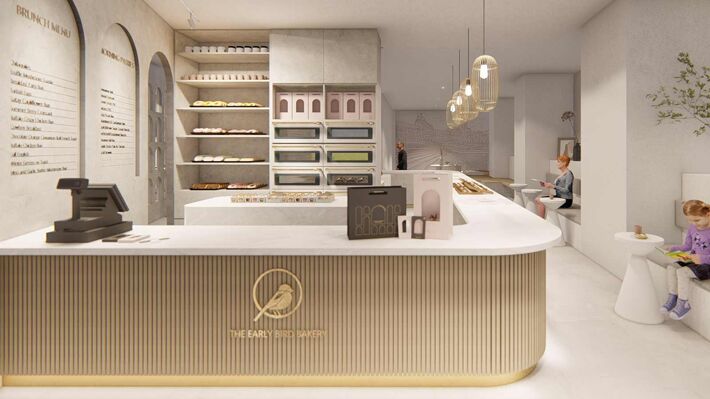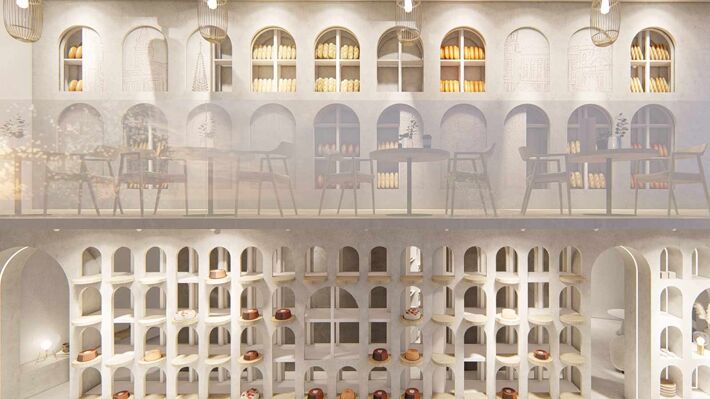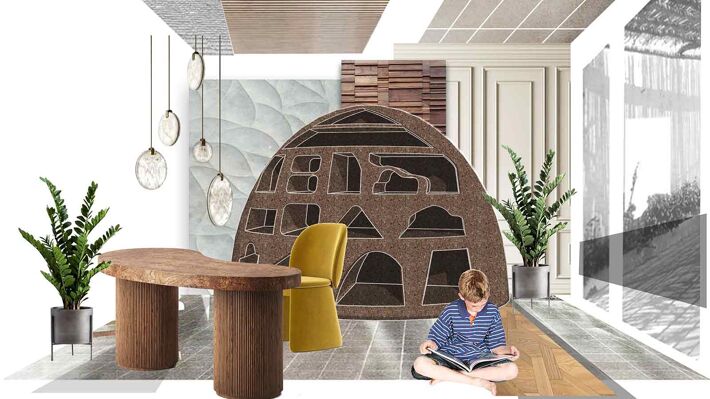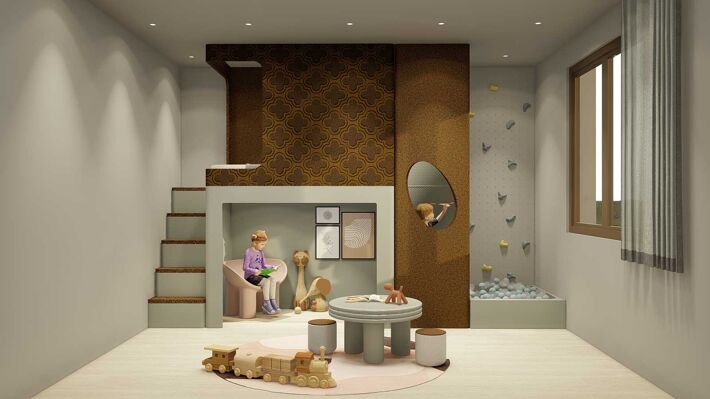Interior Architecture and Design - MA
Currently viewing course to start in 2026/27 Entry.
On the MA Interior Architecture and Design programme you will explore the distinctive qualities associated with the interiors of inhabited architecture....
Learn more about this course
Speak to the course tutor
We are offering online 1-1 sessions between February and April, so you can talk to one of the course tutors at a time of your choice. This is your opportunity to find out more about the course and get your questions answered.
- Level Postgraduate Taught
- Study mode Full Time
- Award MA
- Start date September 2026
- Fees View course fees
- Subjects
- Location City Centre
This course is:
Available with Professional Placement option
Open to International Students
Overview
On the MA Interior Architecture and Design programme you will explore the distinctive qualities associated with the interiors of inhabited architecture.
The course gives you an opportunity to start to tailor your own professional path, be it in the more conventional areas within Interiors (residential, retail, health, transportation sector etc), or in related fields (exhibition design, installation design etc). It also enables you to learn about recent transformations in the industry, with a focus on sustainability, new technologies (including but not limited to AI) and user-led design.
What's covered in this course?
We feel that in the world today it is very important to be strategic about how you promote your work, so we help you develop a communication/marketing tool kit that will effectively connect you with your audience, making good use of social media platforms, networking and job-hunting opportunities.
We value the in-person experience, and you will be encouraged to engage with our on-campus facilities – including the workshops, where you can experiment with advanced methods of fabrication, using laser, digital printing and digital carving technologies, amongst other invaluable resources. Having in mind, nonetheless, that some of you will also have other commitments, we record our sessions to give you the opportunity to catch up with content you may have missed.
Studying on a post-graduate level offers you a unique opportunity to hone your research skills. You will improve your writing skills considerably, and your communication will come across as more robust and professional. This will surely enhance your career prospects, and you may even actually decide that research itself is the right path for you.
We partner with some distinctive players in the industry and will present you some attractive internship opportunities. Previous postgraduate students on the programme have been employed at leading international practices as architects, interior designers, or as design lecturers in further and higher education institutions, with the pathway to postgraduate PhD study also opened up as a result.
Professional Placement option
This course offers an optional professional placement. This allows you to spend 20 weeks with an employer, following completion of your taught modules, and is a great way to enhance your employability.
The experience you gain through your placement will allow you to evidence your professional skills, attitudes and behaviours at the point of entry to the postgraduate job market.
If you choose the placement option, you will be responsible for finding and securing a suitable placement to complement your chosen area of study. You will be able to draw on the University’s extensive network of local, regional and national employers, and the support of our Careers teams. If you do not secure a suitable placement, you will automatically be transferred back to the standard, non-placement version of the course.
Please note: Placements will only be confirmed following a competitive, employer-led selection process. As such, the University will not be able to guarantee placements for students who have registered for the professional placement option.
Why Choose Us?
- The programme provides you with a dynamic range of quality postgraduate experiences and opportunities.
- Birmingham City University is highly respected for its Architecture provision, having delivered the subject since 1909.
- You will have an opportunity to refine your skills in every regard, including learning how to market and promote your work effectively.
- The trans-disciplinary approach of the course allows you to pursue different orientations as designer, from the re-ordering and refurbishment of existing architecture to generating spatial interventions through creativity.
- The course is attuned with the most up-to-date developments in the industry, including sustainability, new technologies and user-led design.
Entry Requirements
Essential requirements
Applicants are normally expected to have a minimum of a 2:2 honours degree, or equivalent, in Interior Design or a closely related three dimensional design discipline.
We also welcome applications from individuals who may not satisfy the normal entry requirements, but have substantial work experience. Such applications will be considered on a case-by-case basis.
Applicants will also need to submit a good portfolio.
Applying with international qualifications
See below for further information on applying as an international student.
If you have a qualification that is not listed, please contact us.
Fees & How to Apply
UK students
Annual and modular tuition fees shown are applicable to the first year of study. The University reserves the right to increase fees for subsequent years of study in line with increases in inflation (capped at 5%) or to reflect changes in Government funding policies or changes agreed by Parliament. View fees for continuing students.
Award: MA
Starting: Sep 2026
- Mode
- Duration
- Fees
- Full Time
- 1 year
- £9,510 in 2026/27
- Full Time
- 18 months (including Professional Placement)
- £10,460 in 2026/27
International students
Annual and modular tuition fees shown are applicable to the first year of study. The University reserves the right to increase fees for subsequent years of study in line with increases in inflation (capped at 5%) or to reflect changes in Government funding policies or changes agreed by Parliament. View fees for continuing students.
Award: MA
Starting: Sep 2026
- Mode
- Duration
- Fees
- Full Time
- 1 year
- £18,970 in 2026/27
- Full Time
- 18 months (including Professional Placement)
- £20,865 in 2026/27
Application deadlines
We advise you to apply early to allow sufficient time for you to prepare to start your studies in September. Please apply by Friday 17 July to allow time to arrange accommodation, student finance and visas where required.
Late applications will be accepted where places are still available.
To find out more, see our application timeline.
Portfolio guidance
If you receive an offer to study this course, you will be required to submit a portfolio. We ask that this is submitted within four weeks of receiving your offer.
Please see our portfolio guidance page for tips on putting your portfolio together.
Portfolio guidance
If you receive an offer to study this course, you will be required to submit a portfolio. We ask that this is submitted within four weeks of receiving your offer.
Please see our portfolio guidance page for tips on putting your portfolio together.
Personal statement
You’ll need to submit a personal statement as part of your application for this course. This will need to highlight your passion for postgraduate study – and your chosen course – as well as your personal skills and experience, academic success, and any other factors that will support your application for further study.
If you are applying for a stand alone module, please include the title of the module you want to study in your Personal Statement.
Not sure what to include? We’re here to help – take a look at our top tips for writing personal statements and download our free postgraduate personal statement guide for further advice and examples from real students.
Course in Depth
Modules
In order to complete this course you must successfully complete all the following CORE modules (totalling 140 credits):
This module will provide you with both academic and creative opportunities to engage with different perspectives on; commercial markets, design processes and design practice. These inter-related elements are often cited as essential factors in the evolution of the dynamic ‘Design Systems’ that are associated with design projects. By focusing on contextually specific architecture sectors, you will use a combination of theoretical and practical analysis, to define, examine and hone your own appreciation of the Design System within which you are working. In doing this, you will define alternative theorems and strategies relating to the construction and deconstruction of design ideas, mechanisms, and processes as part of your own interior architecture and design practice.
This module will engage you in Experiential Learning. Taking as a starting point that “There are two goals in the experiential learning process. One is to learn the specifics of a particular subject, and the other is to learn about one’s own learning process.” (Kolb & Kolb, 2008: 58). The Experiential Learning Model (ELM) developed by Roger Fry and David Kolb, presents a systems view in which learning is composed of four ‘concrete’ elements, namely:
- Concrete experience
- Observation and reflection on the concrete experience
- Formation of abstract concepts based on the reflection
- Testing new concepts
The purpose of the module is to enable you to undertake a sustained, in-depth and theoretically informed research project exploring an area that is of personal interest to you. It is important that we can support you appropriately, so you will be guided towards choosing a research topic which is relevant to your discipline and in which your lecturers have expertise. The outcome may take the form of a written dissertation or a practical outcome with accompanying reflective, critical and contextual material. The main consideration when choosing your topic is that it must be relevant to your programme and you should consider the relevance of this topic to your future academic or professional development.
In order to complete this course you must successfully complete the following SHARED SUBJECT module.
Taking an internationalised stance, this module is concerned with the meaningful context of design practice and considers the cultural, aesthetic, political, economic and social factors that influence designers. By focusing on how these macro conditions effect an individual designer’s decision-making processes and Praxis, the development of specific design ‘cultures’ can be evaluated at an individual, corporate, national and global level. By focusing on a design precedent, you will consider how the designer’s outputs are utilized, valued and absorbed by the design industry at large – including curators, journalists, bloggers, businesses, brands, retailers and the general public. By applying practice-led research, you will form a better understanding about the international and local influences that impact on your own respective design specialism and the resultant design cultures that are emerging within this industry sector.
In order to complete this course you must successfully complete at least the following OPTIONAL module.
The module is an opportunity to learn and critically reflect on the skills of collaboration. Collaboration is a vital employability skill within the Creative Industries and this module allows you to develop these skills, making use of University facilities, with the support of academic staff. Within this module framework, several kinds of collaborative opportunities are available. Your supervisor may set you a predetermined live project, to enable you to work with other students in a way that is appropriate to your subject area; or there may be opportunities for you to collaborate with staff on research projects. In all cases, you must apply your subject skills to a project which will be agreed in advance with your supervisor.
Core modules are guaranteed to run. Optional modules will vary from year to year and the published list is indicative only.
Download course specification
Download nowThe course is structured into three ‘Trimester’ periods that are designed to both build your confidence and improve your level of ability across a range of design and academic contexts.
Each Trimester has been carefully designed to enable you to explore your potential and chart your unique learning curve. During each period, the staff team and your peers will help you to reflect on your practice and recognise when you have developed professionally as you make the transition towards your enhanced career prospects.
Phase 1: Building a foundation of knowledge and skills
This is the most instructional phase of the programme, with a rich timetable of theoretical, practical and interactive sessions. Transitional activities are embedded into the design of each module. This phase ensures core sector knowledge and the development of the required skills needed for you to become independent learners and be successful at later stages of the course.
Phase 2: Experience through practical application
During this phase you will have the opportunity to work on self determined briefs and/or ‘live’ projects on an individual or interdisciplinary group basis. The focus is on learning by doing (experiential learning), putting into practice the knowledge and skills developed during phase one. You will be given greater independence to communicate, argue, problem-solve and rationalise. Tutors will provide milestone reviews and facilitated peer-to-peer discussion to support your professional practice.
Phase 3: Personalised learning and independent study
During this phase you will be given greater autonomy to direct your learning journey by engaging in external partnerships that align with your particular interest and through establishing your own goals. There is no taught content and support is available via scheduled tutorials.
Further study
During your studies, you might want to investigate the broad platform of Masters programmes and research degrees that are available at the University. This may include a Doctorate of Philosophy.
Within the School of Architecture there is an evolving research collective that now includes a cluster of scholars that are actively pursuing Interior Design PhD research interests.
Our extensive connections include professional organisations, designer makers and curators, academics and research fellows, as well as exchange and overseas students. As an early stage emerging researcher and member of this team you would become increasingly engaged with activities such as delivering at leading academic and industry-specific conferences, events, seminars, symposia, exhibitions and access innovation events.
Trips and visits
We have a group trip programmed in early May with a guided tour to a National Trust historical house.
You might also use the assignments to help you to determine places to visit and people to meet.
In previous years our students toured Italy as a team and visited the ‘Milan Expo’ and the 'Venice Architecture Biennale'. Other cities that have been visited include Madrid, Paris, Barcelona, Edinburgh, Berlin, Amsterdam and Lisbon.
Employability
Enhancing your employability skills
The MA Interior Architecture and Design programme aims to foster postgraduates with a set of attributes, which prepare them for their future careers and see that they are:
- Professional and work-ready
- A creative problem solver
- Enterprising
- Have a global outlook
Links to industry
Our students are encouraged to prepare for employment by engaging with a range of supportive activities and events including:
- Continuing Professional Development (CPD) sessions that focus on employability skills and action planning
- Focused architecture sector lectures
- Alumni /employment and interview surgeries
- Interaction with the careers service advisors and careers events hosted at the University
- Friends of the School of Architecture – An extensive network and broad spectrum of connections and industry partners that create opportunities for our students. These are introduced via your staff team, signposted on Moodle or published on noticeboards around the School and on social media platforms
- Design competitions
- Design bursaries and scholarships
- Creative exhibitions
- Collaborative Practice - Live and collaborative projects
- Volunteer organisations connected to the School
- Architecture and design conservation projects
- Industry events and awards ceremonies
- Work experience, internships and employment opportunities
Our Graduates
Jack Elsom
Interior Designer at Harrison, Sutton Coldfield
Graduated 2021
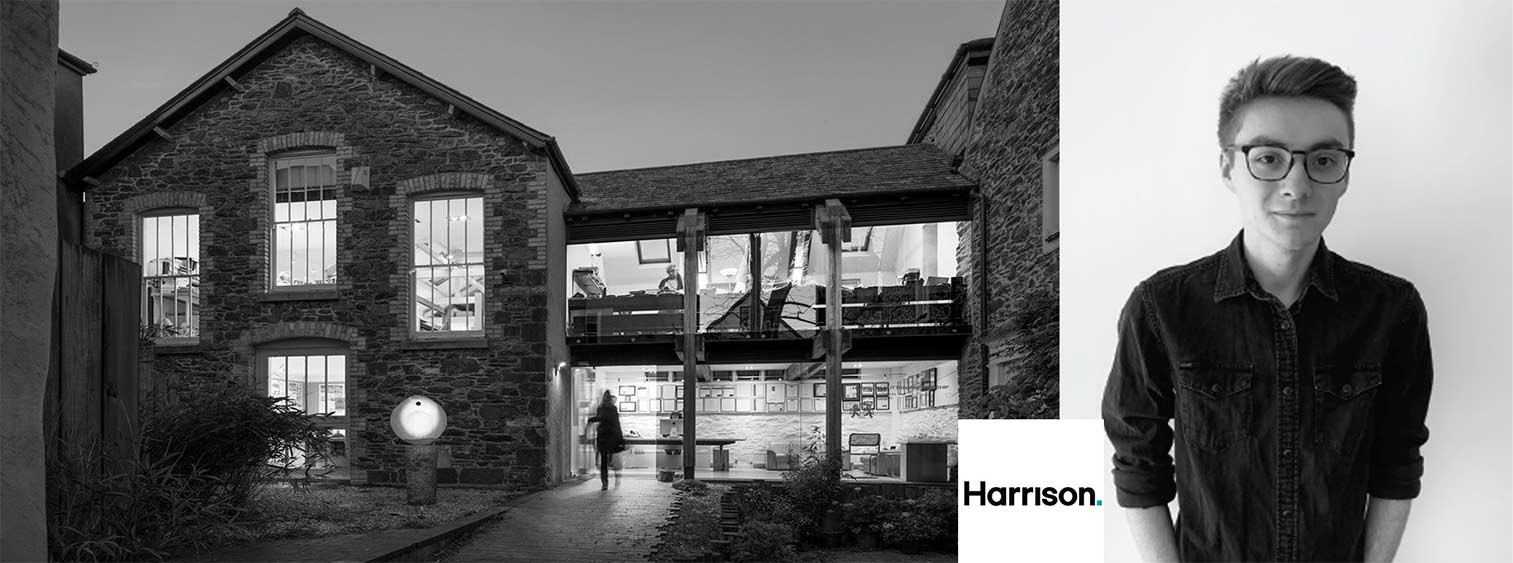
“Over the course of the Interior Architecture and Design MA, I feel that I was regularly encouraged to question my role as a designer and to continuously reflect on my individual approach, philosophy and design praxis.
For me, this was one of the greatest strengths of the course, since it allowed me to evolve and adapt my own design processes, whilst pushing myself to experiment with new methods and techniques, integrating new theories from different academic disciplines including Architecture, Interior Design and the field of Design Thinking.”
Sebastian Demus
Interior Designer at Gensler, Birmingham
Graduated 2021
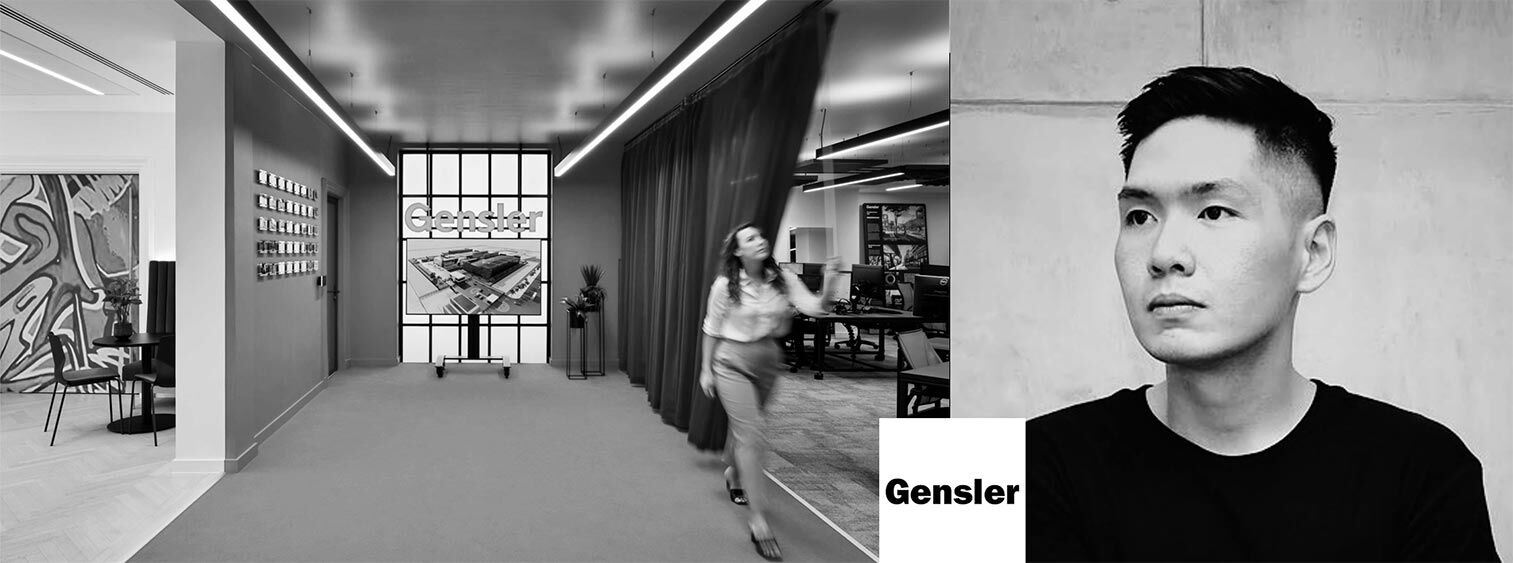
“The MAIAD course has been so insightful. It has allowed me to challenge my assumptions and develop new perspectives about Designing. In particular, the Co.LAB module was an unforgettable experience. I gained my design sensitivity during this module.
My design approach has become more human centred, and with respect, I now put ‘experience’ at the heart of my design process. By collaborating with others, I have realised that ‘we’ can empathise and design together, as the way to understand what the project mission ‘should be’, and what the Interior ‘could be’.”
Catherine Abdelshahid
Interior Designer at Foster + Partners, London
Graduated 2021

“Having graduated from the BA Interior Architecture and Design programme, I made an unnerving decision, during the COVID lockdown in the UK… to progress onto the MA Interior Architecture and Design course at Birmingham City University. On reflection, I can say it was the best decision I ever made. On this creative journey, I have enjoyed so many rewarding experiences and managed incredible achievements, which I am so proud of.
The course has been an eye-opener, helping me to apply new Design Thinking strategies, and be more reflective about the transformation of my own design approach, process, and practice. The tutors have helped each of us to become more confident, by questioning our design moves and challenging our design frames.
Our tutors, mentors, and industry champions have also reinforced our determination to channel our unique mindsets and design styles, towards our individual employment goals. In this regard, I have benefitted from a paid teaching role, which enabled me to be paid as a Studio Assistant with the BA and MA teaching Teams. In 2022, whilst working as a Graduate Studio Assistant on the MAIAD course, I was given the chance of a life- time…an interview to work at the ‘Best Architect in the World’ according to the Architects Journal. After a period of preparation and ‘Practice, Practice, Practice’, I successfully secured my dream job, and I have been working as an Interior Designer at Foster + Partners since October 2022.”
An interview with Catherine Abdelshahid
Facilities & Staff

Our Facilities
When you join Birmingham City University, the first thing you will notice is the exceptional quality of our campuses. With an investment of over £500 million across our buildings and facilities, we are committed to giving you the very best learning environment to help shape your experience.
You will be based in our multi-million pound Parkside building – a state of the art facility located within our City Centre Campus. Here you will have full access to our recently upgraded, high spec CAD (Computer-Aided-Design) workstations situated within our dedicated computer labs and open access areas. We also provide access to leading edge digital design software, enabling you to explore technical drawing, graphics, 3D modelling, visualization, animation, computation, simulation, and virtual reality.
The Parkside Building is also home to our digital fabrication labs, where you will be able to explore 3D printing, laser cutting, CNC machining, ceramics, glass and traditional model-making, guided by our team of expert technicians with access to our on-site material store, and professional printing facilities.
You’ll also benefit from:
- Design studios
- Physical and digital library
- Loanable laptops
- Dedicated social spaces
- Cafés
Photo Gallery
From industry-standard software, to our workshops and studio spaces, everything you need will be at your fingertips from day one. Working with our dedicated teaching teams and expert technicians, you'll be supported from concept through to completion.
Our staff
Dr Ana Araujo
Senior Lecturer, Course Director MA Interior Architecture and Design
Ana Araujo was trained as an architect, and she currently works in the fields of art curating, research and education. Her interests range across the fields of design, the visual arts, psychology, anthropology and gender studies.
More about Ana